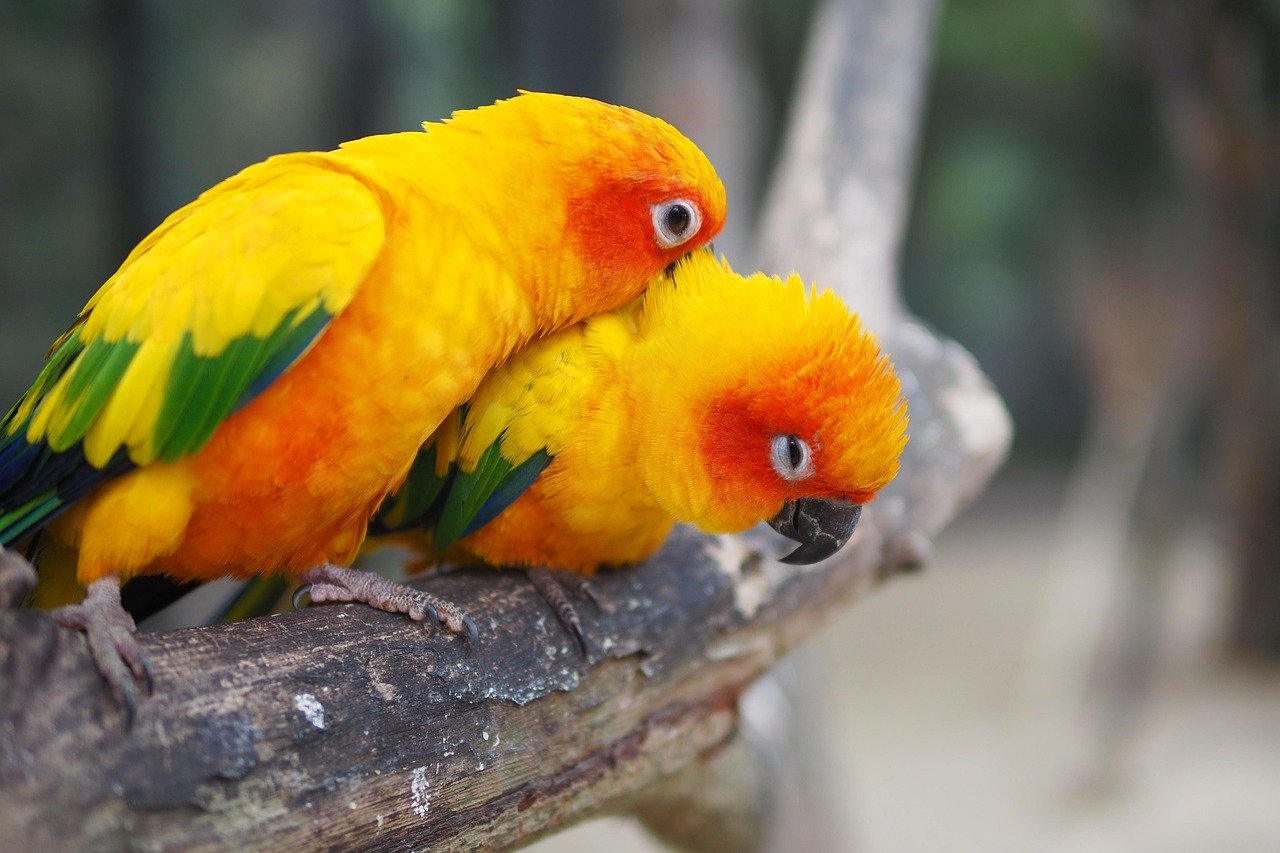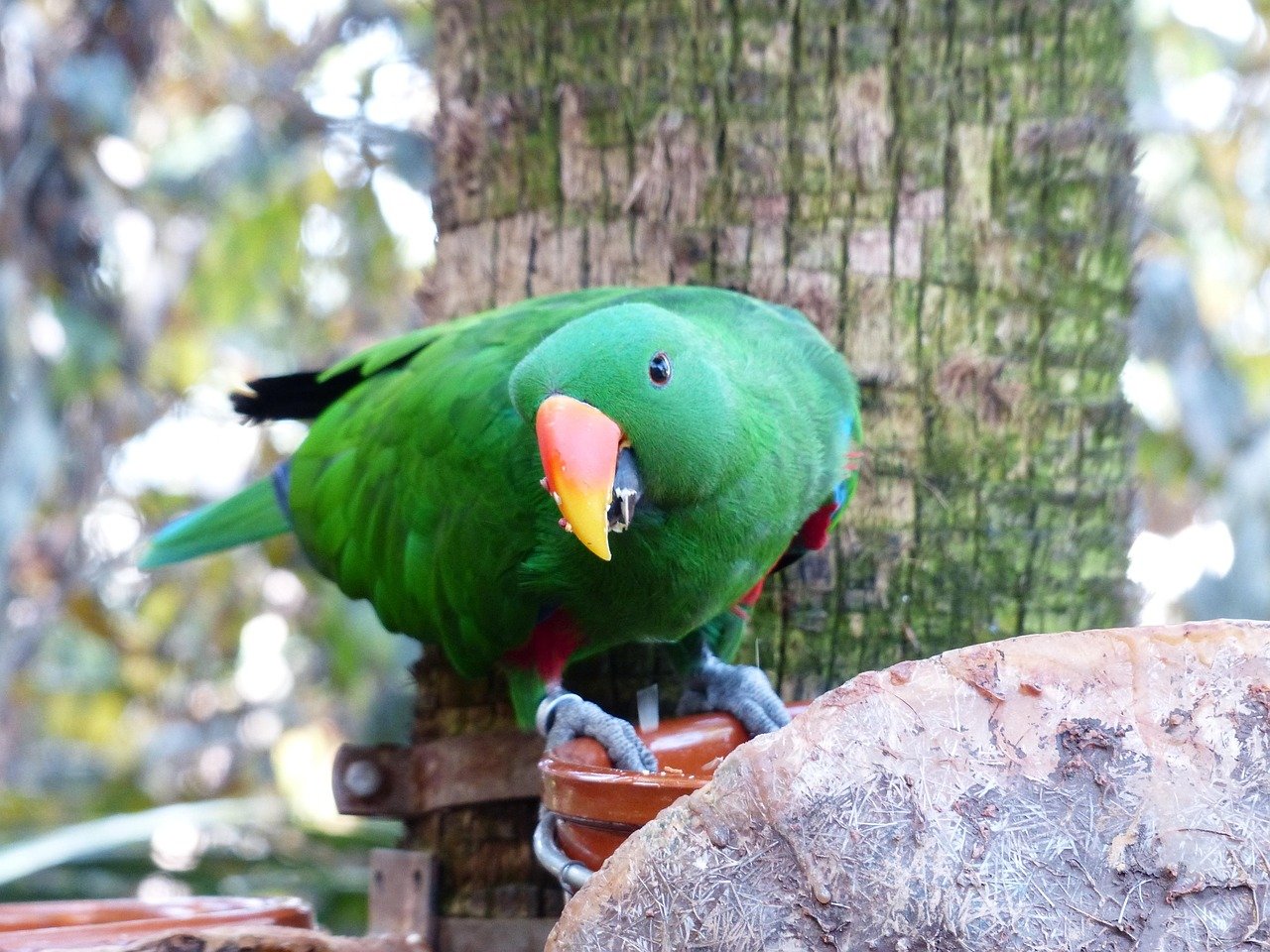Have you ever looked into your bird’s curious eyes and wondered what’s really going on in that busy little mind? Behind those feathers and chirps lies a world of intelligence, emotions, and surprising needs. Many pet birds are not just adorable companions; they’re clever problem-solvers, relentless explorers, and even mischief-makers. But there’s a hidden truth that too often goes unnoticed: some of the most popular pet bird species desperately crave more mental stimulation than most owners realize. When these birds are bored, their restlessness can quickly turn into frustration, misbehavior, or even heartbreak. Are you truly keeping your feathered friend challenged and fulfilled? Let’s dive into the seven bird species that desperately need more to do—and how you can make their lives brighter, happier, and endlessly fascinating.
African Grey Parrots: The Einsteins of the Bird World

African Grey Parrots are famous for their astonishing intelligence and ability to mimic human speech. Often called the “Einsteins” of the bird world, they can figure out puzzles, learn hundreds of words, and even use phrases in context. But their brilliance is a double-edged sword. Without enough mental stimulation, African Greys quickly become bored, leading to feather plucking, screaming, or even aggressive behavior. These birds thrive on daily challenges—think treat-dispensing toys, foraging activities, and interactive games. Owners often underestimate just how much variety and problem-solving these parrots need. Imagine living in a world where you’re always one step ahead—wouldn’t you want new mysteries to solve every day? That’s exactly what your African Grey is hoping for.
Budgerigars (Budgies): Small Birds with Big Brains

Budgies may look tiny and delicate, but don’t let their size fool you. These little birds are bursting with personality and intelligence. Many people think of budgies as simple pets who are happy with a swing and a mirror, but they crave much more. Budgies love learning new tricks, solving puzzles, and exploring different textures and toys. If left unstimulated, they can become listless, start biting, or develop repetitive behaviors. A bored budgie might even lose interest in socializing—something totally out of character for these social butterflies! Giving them a rotating selection of toys, teaching them fun routines, and talking to them every day makes a world of difference. When you see a budgie light up with curiosity, you’ll realize just how much they need your attention.
Cockatoos: The Emotional Entertainers
Cockatoos are famous for their playful antics, dramatic personalities, and heart-melting cuddles. But behind their goofy dances and affectionate nuzzles, cockatoos are emotional and highly intelligent creatures. They require constant engagement—not just physical but mental as well. Without regular challenges and variety, cockatoos can develop severe behavioral problems like excessive screaming, feather destruction, or self-harm. These birds thrive on interactive play, puzzle toys, and even music sessions. Many cockatoo owners are shocked by how much time and creativity it takes to keep these birds happy. Think of a cockatoo as an energetic child who never outgrows their love of games and attention. Their need for stimulation is intense, and meeting it is both a challenge and a joy.
Amazon Parrots: The Mischievous Problem-Solvers

Amazon Parrots are bold, curious, and sometimes downright cheeky. They’re known for their love of games, talking, and even a bit of harmless mischief. These birds are natural-born problem solvers who will go out of their way to figure out how to open cages, unclip latches, and find hidden treats. If you don’t provide them with enough mental challenges, they’ll invent their own—often in ways that leave owners baffled or frustrated. Boredom can lead to loud vocalizations, destructive chewing, or stubborn behavior. To keep an Amazon Parrot fulfilled, you’ll need to invest in advanced puzzle toys, training sessions, and regular changes to their environment. Their cleverness is endearing, but it demands your creativity and attention every single day.
Conures: The Energetic Adventurers

Conures are like the adventurous teenagers of the bird world—always on the move and always looking for the next exciting thing. These medium-sized parrots are bursting with energy and curiosity. Many people underestimate just how much mental stimulation conures need. Without enough to do, they can become nippy, noisy, or even start feather plucking. Conures love exploring new objects, learning tricks, and interacting with their humans. Providing a variety of toys, regular training, and plenty of out-of-cage time is essential. If you want a conure to thrive, you have to match their enthusiasm with plenty of new experiences. Their playful spirit makes them a joy, but it also means they need your time and creativity every day.
Macaws: The Giants with Childlike Curiosity
Macaws are the majestic giants of the parrot family, known for their stunning colors and powerful personalities. These birds are incredibly intelligent and have a childlike sense of wonder about the world. Macaws need a huge amount of mental stimulation, and a lack of it can lead to destructive chewing, ear-piercing screeches, or even depression. Owners often underestimate just how much space, variety, and engagement these birds require. Macaws love complex puzzles, foraging activities, and interactive training sessions. They’ll quickly grow bored with repetitive routines or limited environments. To keep a macaw happy, you need to provide endless opportunities for exploration and learning. Their big hearts and big brains deserve nothing less.
Eclectus Parrots: The Observant Thinkers

Eclectus Parrots are known for their striking colors and calm demeanor, but beneath the surface, they’re deep thinkers who crave variety and mental challenges. These birds are highly observant, noticing even the smallest changes in their environment. If they don’t get enough mental stimulation, Eclectus Parrots can become withdrawn, anxious, or develop repetitive behaviors. They enjoy foraging toys, interactive play, and exploring new textures and foods. Keeping an Eclectus engaged means regularly updating their toys and offering new experiences. These parrots thrive when their keen minds are kept busy, and their happiness depends on your willingness to offer them fresh challenges. Their quiet intelligence is easy to overlook, but it’s the key to understanding their needs.
So, if you’re living with one of these clever little feathered friends, don’t underestimate their need for brain workouts. Keeping their minds busy isn’t just a bonus—it’s essential for their happiness and well-being. From foraging toys to interactive playtime, a little effort goes a long way. After all, a mentally stimulated bird is a happy, healthy one—and way less likely to squawk your ears off out of boredom!





